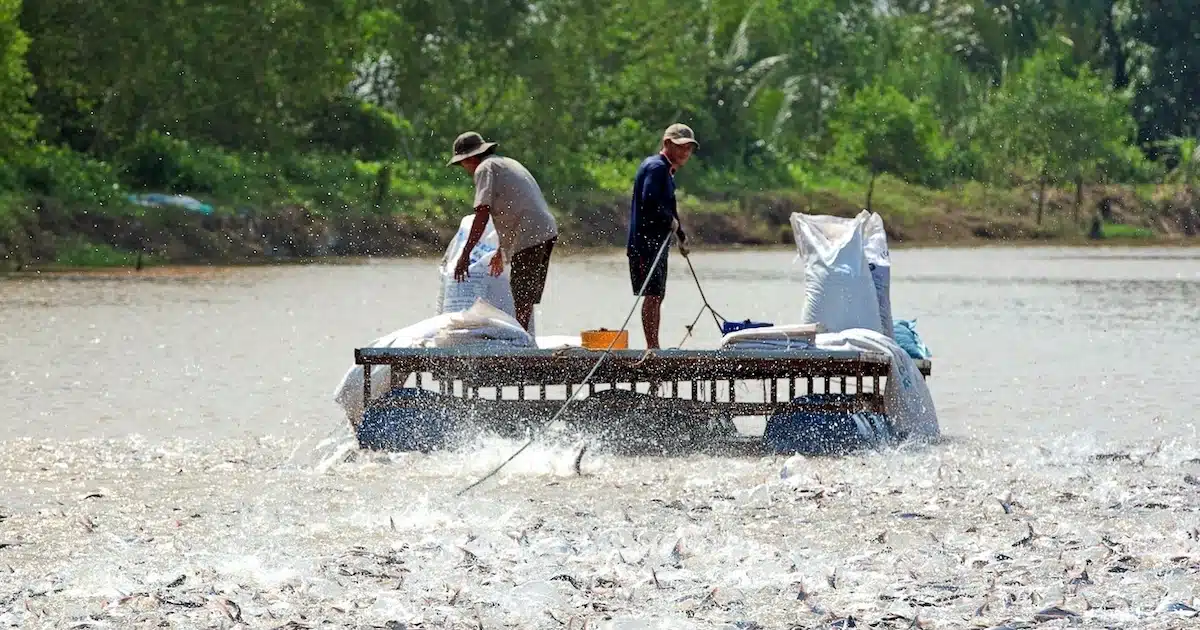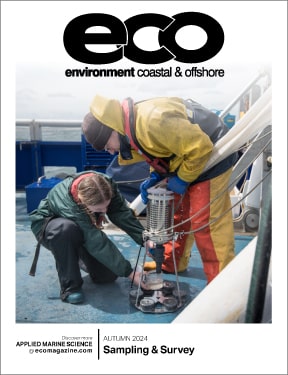The new project—led by the University’s world-leading Institute of Aquaculture—will build on a previous study that developed an innovative vaccine to tackle antimicrobial resistance (AMR) in Vietnamese catfish and provided insight into the barriers to vaccine use amongst farmers.
The multidisciplinary team—which includes psychologists and behavioral economists from the University of Stirling—will use the latest funding to support the commercial development of the new vaccine and encourage uptake amongst aquaculture farmers in Vietnam. Ultimately, the project is seeking to reduce damaging antibiotic use which leads to rapid antimicrobial resistance within freshwater farming systems.
Professor Margaret Crumlish of the Institute of Aquaculture is leading the new project, which is funded by £774,239 from Canada’s International Development Research Centre and the UK Department of Health and Social Care, under the Innovative Veterinary Solutions for Antimicrobial Resistance (InnoVet-AMR) initiative. This is in collaboration with Dr. Le Hong Phuoc and his team from the Research Institute of Aquaculture Number 2 (RIA 2), located in Ho Chi Minh City, Vietnam.
Professor Crumlish said: “Vaccine hesitancy in the Vietnamese Pangasius catfish sector remains high, and combined with poor antibiotic stewardship, the sector has reached an AMR crisis. The novelty of this project is not only the new immersion-based vaccine, but the integration of behavioral sciences to directly address vaccine hesitancy and promote vaccination strategies to reduce the threat of AMR.”
Vietnam is one of the largest producers of aquaculture in the world and, over the past 25 years, is the global leader of the farmed freshwater catfish (Pangasius) sector—with the produce sold in more than 160 countries.
However, catfish suffer from bacterial infections, which result in the widespread use of antibiotics—and previous research has suggested that 80 percent of farmers lacked a therapeutic approach and, instead, used a cocktail of antibiotics. As a result, the Vietnamese catfish sector is currently in an AMR crisis, which is affecting animal, human and environmental health within freshwater systems.
Although a commercial vaccine against bacterial diseases in catfish has been available since 2013, farmers in Vietnam appear reluctant to use this product.
The first stage of the study, which launched in 2019 and spanned four-and-a-half years, developed improved vaccines against two major bacterial diseases—Edwardsiella ictaluri and Aeromonas hydrophila—that adversely impact the aquaculture sector, and considered the feasibility of introducing them to farms in Vietnam.
The team successfully developed an effective vaccine that works by immersion—submerging fish in the vaccine for a short period of time, before returning them to the pond. Data from the first project showed the new vaccine gave 70% protection against both diseases.
To address vaccine hesitancy, Professor Ronan O’Carroll, a psychologist based in Stirling’s Faculty of Natural Sciences, and economist Professor David Comerford of Stirling Management School, integrated psychology and behavioral economics to identify the barriers and catalysts around vaccine hesitancy in the Vietnamese fish farming sector. They found a multitude of reasons as to why farmers chose not to effectively vaccinate their fish—including a lack of trust in the vaccine, concerns about future use, inconvenience, and cost.
On cost, the team found that the price of the vaccine itself was not the primary deterrent for farmers—but the associated costs with the logistics of administering, such as the employing of vaccination teams and purchase of equipment.
Stage two will seek to move the novel vaccine along the production pipeline and explore interventions designed to encourage farmers away from antibiotic use and towards vaccine uptake. The team will also test whether attitudes to vaccines, in general, have changed as a result of the COVID-19 pandemic and whether this has reduced vaccine hesitancy among fish farmers.
Stage two—which runs to October 2026—involves Ronan O’Carroll, Professor of Psychology; Dr. Till Stowasser, Senior Lecturer in Economics at the University of Stirling; Professor Simon MacKenzie and Dr. Chris Payne of the Institute of Aquaculture; and the Research Institute for Aquaculture Number 2 in Vietnam.
Three papers have been published on the results from stage one of the study, with a fourth currently in review.
InnoVet-AMR is funded through the Global Antimicrobial Resistance Innovation Fund, which supports research and development around the world to reduce the threat of antimicrobial resistance in low- and middle-income countries.

